Are you familiar with the concept of bean water? It is highly recommended that you stop reading this post right now if you have not already done so. There is a substance known as bean water that originates from the beans themselves. Not only does it have a delicious flavor, but it also aids in the digesting process.
We’ve learned that drinking an excessive amount of bean water might not be as healthy as we thought it would be, although bean water has been marketed as a healthy drink throughout the years. A number of research have been carried out by the University of Maryland to investigate the subject of whether or not consuming an adequate amount of fluids is actually good for our bodies.
What is Bean Water?
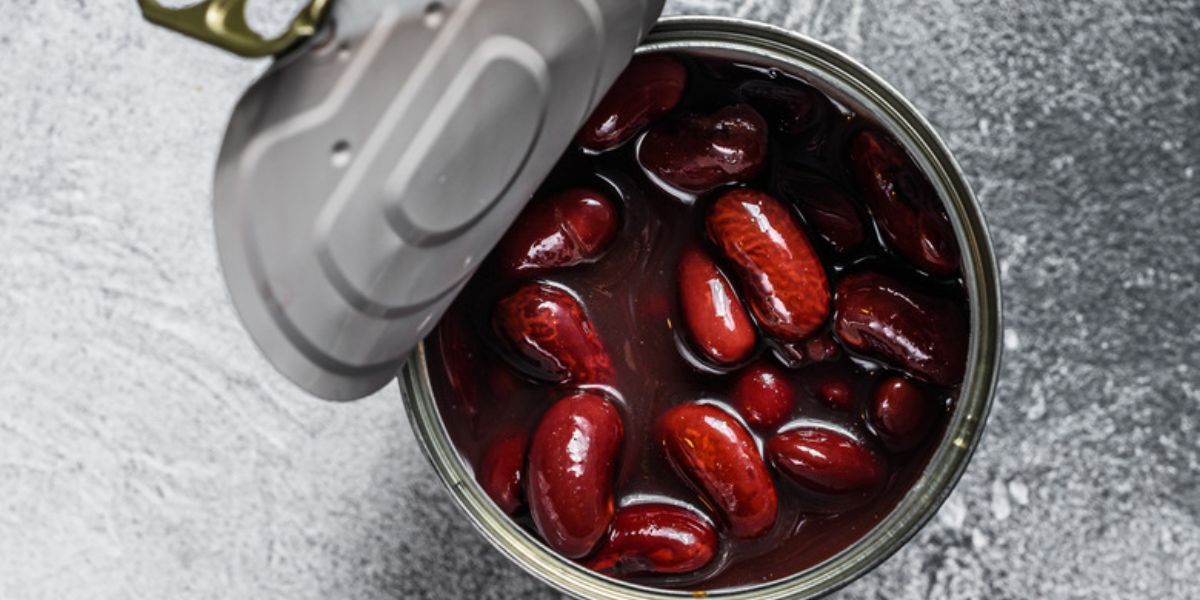
Bean water, also known as aquafaba, is the liquid left over after cooking beans. This liquid, rich in starches that leach out during the cooking process, possesses natural thickening properties, making it an excellent ingredient for sauces, stews, and soups. Additionally, when seasoned with salt, pepper, or herbs and spices, bean water becomes a flavorful broth that enhances the taste of dishes.
Think of bean water as a versatile alternative to traditional broths made from vegetables, beef, or chicken. Depending on the type of beans used, the resulting broth varies in color and flavor, offering a unique culinary experience. Lighter-colored legumes such as white beans and chickpeas produce a milder broth, ideal for adding flavor to sauces, cooking grains like rice or quinoa, and preparing broth-based soups.
While darker beans like black beans and adzuki beans yield flavorful bean water, some may find their darker color less appealing. Nevertheless, these darker broths still contain nutrients and can be used in various culinary applications. Overall, bean water offers a flavorful and nutritious addition to your kitchen repertoire, showcasing the versatility and resourcefulness of this humble ingredient.
Health Benefits of Bean Water
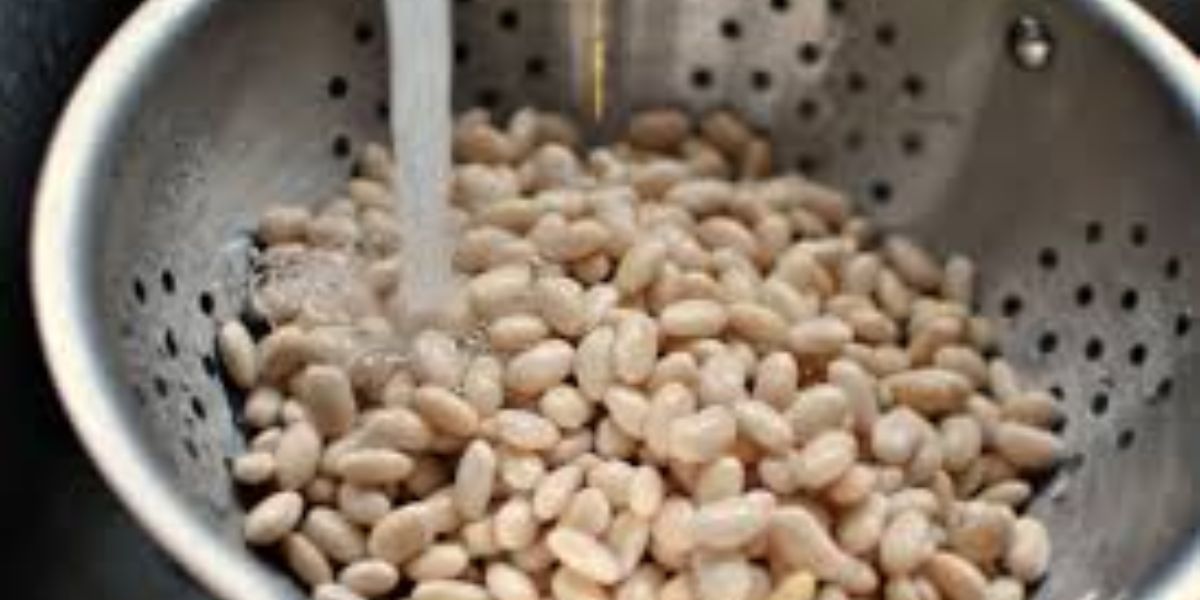
Bean water, or aquafaba, offers several potential health benefits despite the limited research conducted specifically on its health advantages. Here’s a breakdown of the nutrients and benefits associated with bean water:
- Minerals: When beans are cooked, some minerals like calcium, iron, and zinc leach into the cooking liquid, which becomes bean water. While not all minerals are retained in the bean water, it likely contain significant amounts of these nutrients. Calcium is essential for bone health, iron is necessary for oxygen transport in the body, and zinc plays a role in immune function and wound healing.
- Protein: Beans are a good source of plant-based protein, and some of this protein is released into the cooking water during the boiling process. Bean water therefore contains a portion of the protein found in beans, providing a valuable source of amino acids needed for muscle repair, immune function, and hormone synthesis.
- B Vitamins: Bean water may also contain B vitamins such as niacin (vitamin B3) and thiamine (vitamin B1). These vitamins are crucial for converting food into energy, supporting nervous system function, and promoting healthy skin and hair.
- Thickening Agent: The starches released from the beans during cooking contribute to the thickening properties of bean water. This natural thickener can be used to add texture and body to sauces, stews, and soups without the need for additional thickeners like flour or cornstarch.
Overall, while more research is needed to fully understand the nutritional composition and health benefits of bean water, it offers a convenient and potentially nutrient-rich addition to your cooking repertoire. By utilizing bean water in your recipes, you not only reduce food waste but also enhance the nutritional profile and flavor of your dishes.
Is It OK to Rinse Canned Beans?
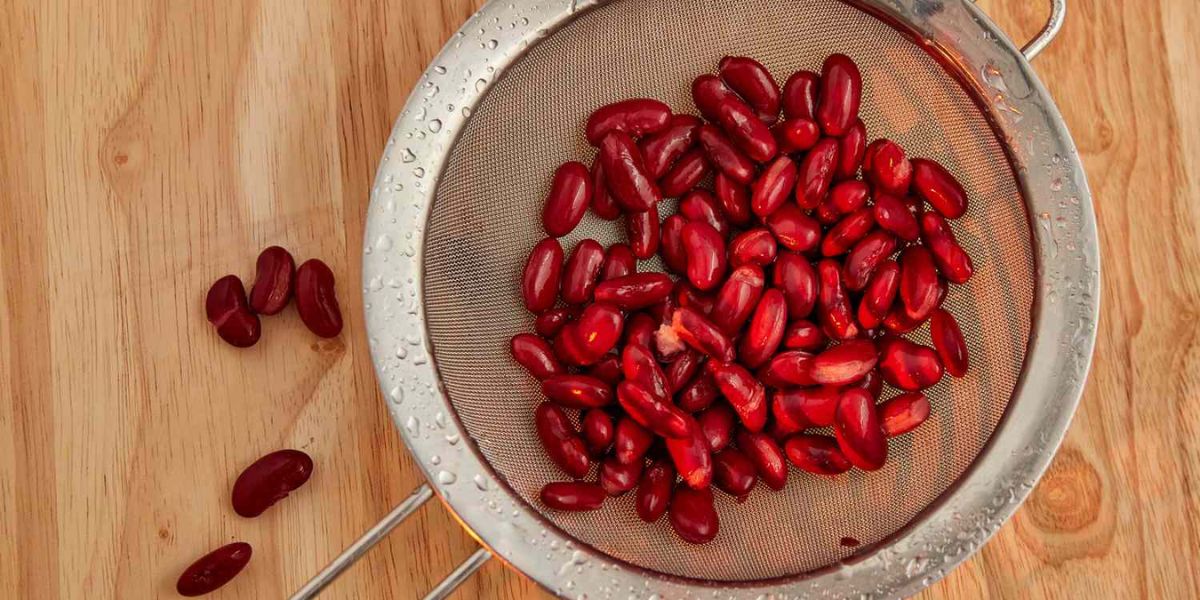
Yes, it is perfectly fine to rinse canned beans. In fact, it is frequently advised. Rinsing canned beans can help lower sodium levels, remove extra starch or brine, and improve flavor and texture. Simply place the beans in a sieve and rinse with cold water before using them in your recipes. Let’s take a look at different perspectives on rinsing canned beans: is it ok or not?
Rinsing Canned Beans from a Nutritional Perspective
If you are a relatively healthy individual, it is acceptable to consume canned beans without first draining or rinsing them. It is because sodium is necessary for the proper functioning of our bodies. Problems arise only when we go beyond what is required of us; this is the only time it becomes an issue. Beans, in addition to providing sodium, are a source of potassium, which is an essential electrolyte for maintaining a healthy heart. According to a study, potassium may help counteract the impact that sodium has on blood pressure.
Before you use canned beans, however, it is a good idea to drain and rinse them. This is especially important if you are someone who needs to control the amount of sodium that you consume. You can cut the sodium by forty percent by doing so.
However, if you do not wish to rinse them, you should at least try emptying them first. Using only the draining method will reduce the sodium by a third. To summarize, if you are concerned about your health and want to reduce the amount of sodium you consume, it is not a bad idea to drain and rinse the beans in the can before using them. Or, even better, get types that have reduced sodium or no salt at all.
Rinsing Canned Beans from a Culinary Perspective
It is recommended to clients that they begin by draining and rinsing the food, setting aside some space for seasoning, and tasting as they go.
It is not only the salt that is a cause for concern; the liquid is also a cause for concern. In order to preserve the beans, they are packed in a mixture of water, salt, and starch. This solution has the potential to leave a glossy coating on the beans, which not only affects the mouthfeel of the beans (slimy beans are a touch off-putting) but also the capacity of the beans to attach to other components of the meal and absorb the tastes of other components.
How to get the perfect bean water?
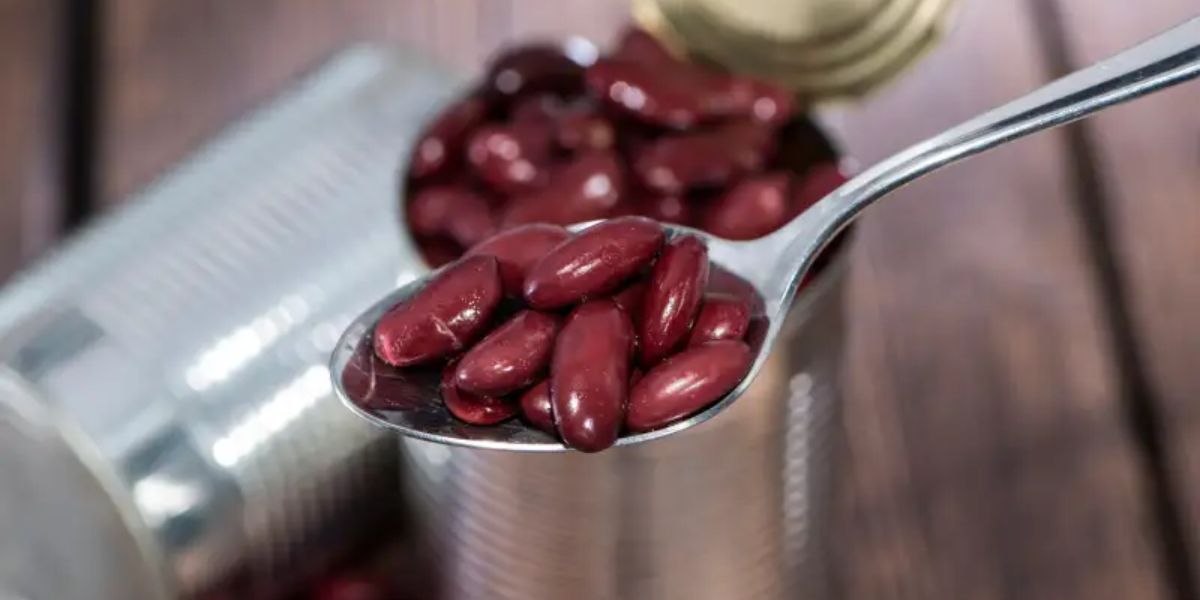
In the event that you do not have any difficulties digesting the fiber that is found in beans, there are a variety of delicious things that you can do with the residual bean water after boiling your preferred legume.
Preparing your beans by soaking them before boiling them is an excellent method that can make the water that they are cooked in even more digestible. Soaking your beans can help minimize the amount of fibers that are difficult to digest, notably oligosaccharides, that are present in the beans and bean water after they have been cooked or otherwise processed.
In addition to this, it reduces the amount of phytic acid, which is a chemical that is present in grains and legumes and that binds to minerals and stops them from being absorbed. Warm soaking and draining your beans is probably the ideal option because cold soaking your beans does not actually get rid of those pesky fibers. However, many people may advise you to soak your beans overnight. However, some research has shown that warm soaking and draining is definitely in your best interest.
Is it possible to freeze bean water?
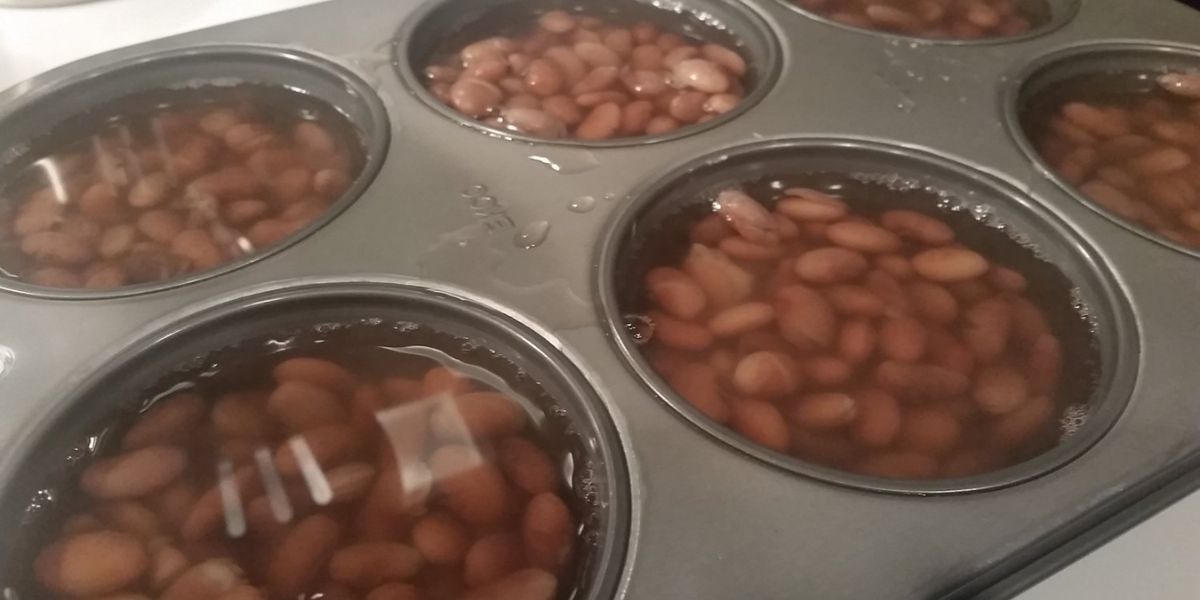
If you routinely prepare large quantities of beans, you might be wondering whether or not it is possible to freeze the bean water and utilize it at a later time once it has been cooked.
In a manner similar to that of vegetable or animal broth, your bean water broth can be frozen in order to preserve its freshness until just before you use it. You also have the option of freezing beans if you want to prepare a significant quantity of your beans. Nevertheless, there is not sufficient information available to evaluate whether or not freezing bean water will have an effect on the nutritional value of the bean water.
It is imperative that you always check the label on your canned beans to determine the amount of time that they were stored before being opened. Buying a filtration system of superior quality is something you should think about doing if you are concerned about the quality of the water that you use for your beans. This will ensure that the water is clear of any toxins.
Soak Your Beans in the Appropriate Manner
Place the beans in a dish and fill it with cold water to begin the soaking process. Beans should be let to soak overnight. The bowl should be drained of any water that is still there. The amount of boiling water that is sufficient to cover the beans by one inch should be added to the bowl in which the beans were cooked.
Allow the water to simmer for two hours after it has been brought to a full boil. Take the pan off the heat and pour off any liquid that is still present. To ensure that the beans are totally cooled, cover them with cold water and let them sit. You can use your fingers to remove the skins from the beans once they have cooled down.
Uses That Are Ideal For Bean Water
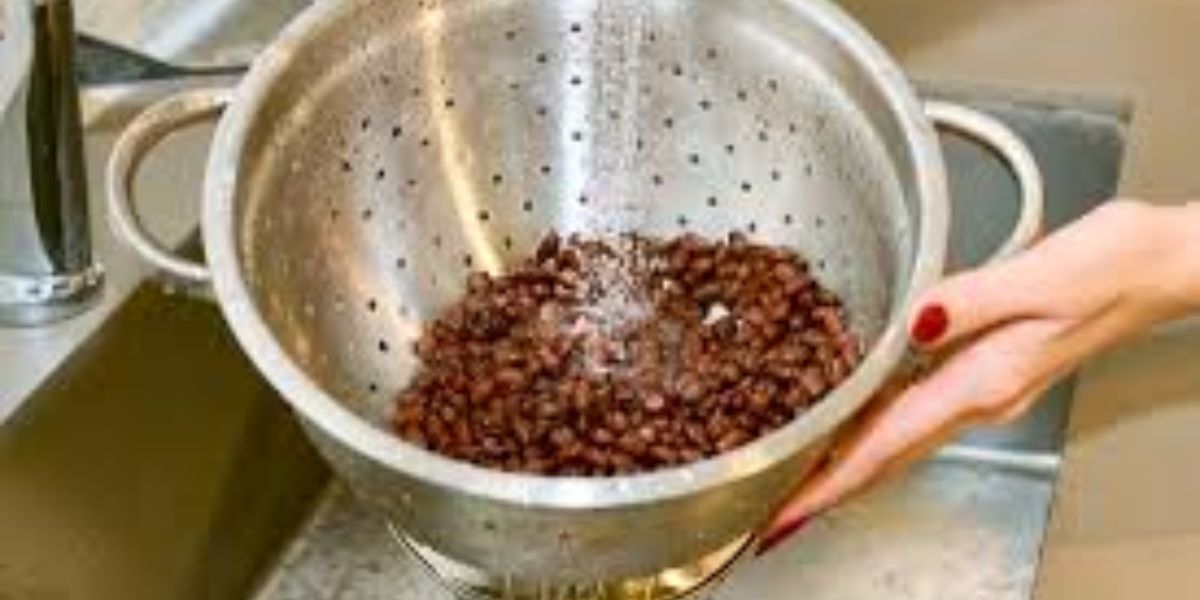
When it comes to protein and fiber, beans are an excellent source. Additionally, they have a wide range of applications. You are able to consume them in their natural state, as well as incorporate them into recipes such as soups, salads, sandwiches, pasta dishes, casseroles, stews, chili, dips, and cakes.
A stock that can be used in soups is bean water
Rather than using conventional stock while making soup, you can substitute bean water for the stock. Additionally, it imparts taste and minerals to your soup. Put some beans in your pasta dishes. To answer: Some pasta recipes, such as lasagna, ravioli, cannelloni, and manicotti, can benefit from the addition of beans.
When you want to thicken stews and sauces, use bean water
To thicken soups and stews, bean water is a simple and effective method. Put one cup of dried beans into two cups of water, and then let them soak for the entire night. After draining the beans, throw away the liquid that they were soaking in.
A pot should be used to bring the beans to a boil. Make sure the beans are soft by reducing the heat to low and simmering them for around half an hour. Take it off the heat and let it to rest for a while. Take the beans and puree them using a food processor or a blender.
Through cheesecloth or a sieve with a fine mesh, transfer the pureed beans to a basin for further processing. Let the solids go to waste. For the purpose of thickening soups, sauces, gravies, and other dishes, use the bean water that has been filtered.
To add more liquid to the dips, use bean water
Simply adding a little bit more bean water to the dip will allow it to be more liquid. If you were creating guacamole, for instance, you might incorporate one tablespoon of bean water into the mixture during the preparation process. It is because of this that the thickness of the dip will be reduced.
When you are cooking your grains, use bean water
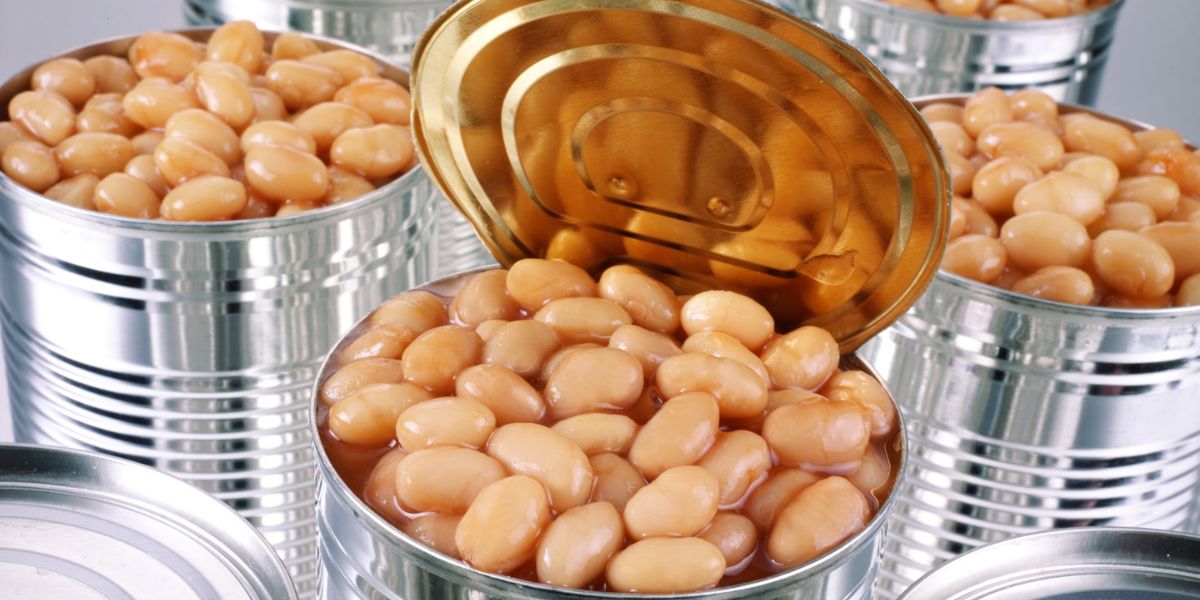
Instead of using water to boil your grains, you may use bean water instead. This is a quick and easy method to prepare your grains. Just put one cup of beans into a saucepan and bring it to a boil while it is still hot.
After the beans have reached a boil, remove them from the heat and allow them to settle for around ten minutes. The beans should be discarded after the liquid has been strained from them. To the skillet containing the bean water, add two cups of grain and stir until the ingredients are blended. After twenty minutes of simmering, serve the food.
Replace water in doughs with bean water instead of water
Bean water can be used in place of half of the water in any dough recipe it is intended for. You only need to combine two cups of flour with half a cup of cooked dried beans, such as black, navy, kidney, or lima beans, and then add enough water to make a softball. Give it a good kneading, then let it rest for fifteen minutes. After rolling it out, cut it into the shapes you want. Bake at 350 degrees Fahrenheit for 12 to 15 minutes, or until the top is golden brown.
Conclusion
The discourse on bean water presents a multifaceted perspective, combining culinary innovation with nutritional consideration. Bean water, or aquafaba, emerges as a versatile ingredient, offering natural thickening properties and rich flavors, enhancing a variety of dishes from soups to sauces.
From a nutritional standpoint, bean water retains minerals, proteins, and B vitamins, contributing to overall health benefits. However, excessive consumption may pose concerns, particularly regarding sodium intake. While rinsing canned beans is advisable to reduce sodium levels, it’s equally crucial to explore diverse culinary applications and preparation methods for maximizing the benefits of this humble yet valuable ingredient.










